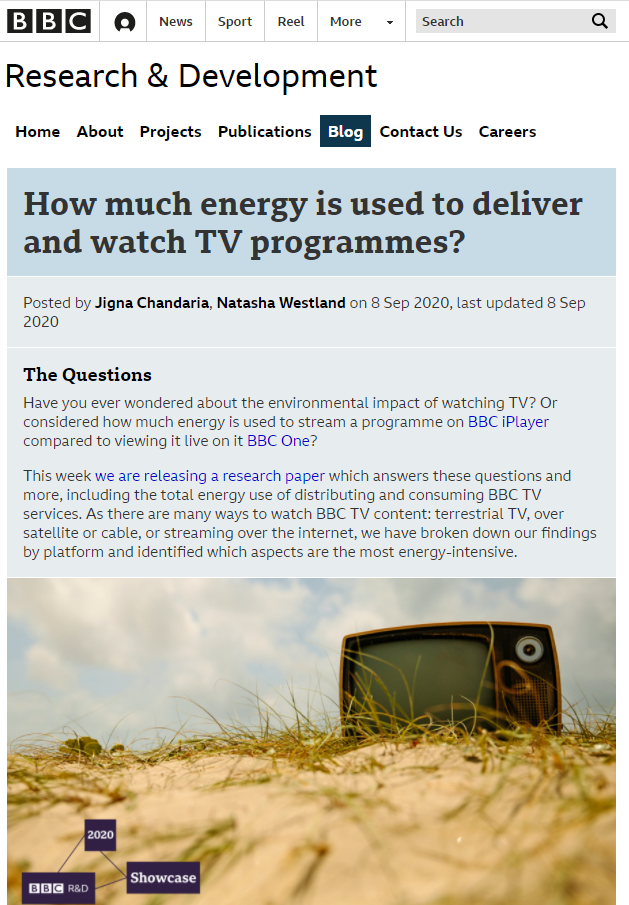
Source
In a study by the British public broadcaster, the energy impact of radio broadcasts on all bands was calculated: Medium Waves, FM, DAB and digital terrestrial TV. In addition to the consumption to produce the programs and distribute them on the different platforms, the research also estimated those to listen to them, then linking them (for each medium) with the hours of listening, to quantify the hourly energy consumption. This highlighted the key points where to concentrate efforts to reduce the energy footprint.

Source
BBC radio attracts over 30 million listeners in the UK every week through live stations, podcasts and other on-demand content. Unlike TV, which completed the digital switchover in 2012, the BBC still provides analogue radio services that continue to make up a considerable portion of the audience. While broadcasters are discussing whether radio should switch to digital, the media industry has been studying the possibility of migrating to distribution exclusively over the Internet. Both of these approaches would have inevitable environmental impacts that have yet to be quantified. The research then assesses the effect that a digital radio switchover or a transition to IP-only services could have on energy consumption, and addresses also alternative scenarios.
